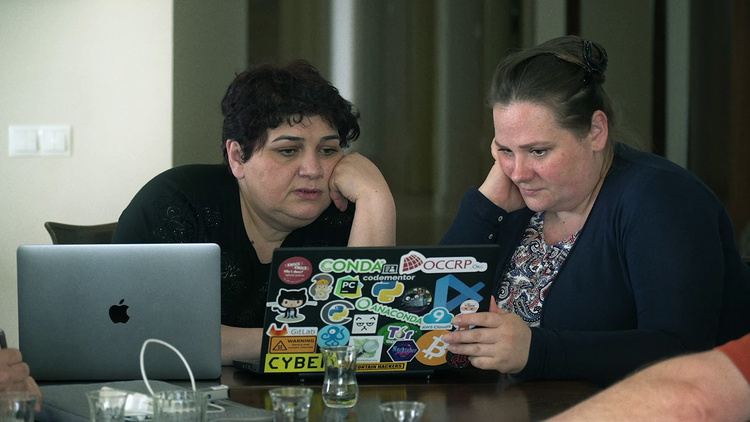Azerbaijan suspected of spying on journalists using Israeli Pegasus spyware
A new investigation by the Organized Crime and Corruption Reporting Project (OCCRP) has revealed that Azerbaijani authorities were spying on over 1,000 Azerbaijani journalists and activists. 73 cases of alleged surveillance have already been confirmed and the investigation is ongoing on the remaining incidents.
- Police brutally disperse protest against killing of stray dogs in Baku. VIDEO
- Is the opposition being targeted in the Syunik region of Armenia?
What happened?
According to the results of the investigation, the Azerbaijani authorities used a spy program produced by the Israeli company NSO Group, known for developing devices for cyber-harassment, to wiretap independent journalists and activists.
In May 2021, three chief editors working with OCCRP traveled to the capital of Turkey – Ankara, the capital of Turkey and the Azerbaijani journalist Khadija Ismayilova, who received the right to leave the country, went there with them.

OCCRP editors told Khadija that the main purpose of their meeting is to convey important information to her. As it turned out, Ismailova’s mobile phone was intercepted by the Pegasus program. Due to its unique properties, this program allows one to pursue the owner of the phone, and secretly perform various operations on it. Pegasus can record all conversations, read the texts of SMS messages, transfer photos and videos from the phone, and, without the knowledge of its owner, take photos and videos from it. At the same time, the phone does not give its owner a single notification about the operations performed.
Khadija Ismailova is not the only one who was being spied on. OCCRP has identified 50,000 wired phone numbers from all over the world. The list of these numbers was released by Forbidden Stories and Amnesty International.
OCCRP project
The results of the Pegasus investigation were published by 80 journalists working in 17 media outlets in 10 countries.
The project was carried out with the technical assistance of the Amnesty International Security Laboratory from Forbidden Stories and Amnesty International.
What is Pegasus?
Analyzing the phone numbers presented to her, Khadija Ismailova found the numbers of her niece, one of her personal friends, and even a taxi driver, whose services she often uses.
Thus, the spyware penetrates not only the phone of a particular journalist or activist, but then branches out its functions to the phones of those with whom the person is in contact with.
So far, journalists from the project have managed to identify only a quarter of the owners of phone numbers targeted by spyware. This painstaking work has been going on for several months.
NSO Group describes itself as a company that helps states in the timely detection of impending terrorist attacks or crimes.
But so far it is impossible to say unequivocally that the Azerbaijani government was a client of this Israeli company. There is no evidence to support this notion, however, account, this is indicated by the presence in the list of over 1,000 phone numbers owned by journalists, activists and lawyers from Azerbaijan.
NSO Group has not yet answered specific questions regarding its ties with Azerbaijan but the company stressed that they do not allow abuse of their programs, as they are aimed solely against criminals and terrorists.
Whose names are on the list?
On July 19, a list of 73 people, whose phone numbers have already been identified, was published on the Azerbaijani segment of social media. All their actions in recent years have been closely monitored by the Azerbaijani authorities.
Surprisingly, the list also contains the names of several openly pro-government journalists. Among them are the editor-in-chief of the well-known website haqqin.az Eynulla Fatullayev, the editor-in-chief of the Yeni Musavat newspaper Rauf Arifoglu and the head of the Gündəlik Teleqraf media holding Ainur Jamalgizi.
Another prominent figure on the published list is the “prisoner of the monument” Bayram Mammadov, who died in Istanbul in May 2021 under unclear circumstances.
However, the majority of numbers on the lists still belong to independent journalists based in Azerbaijan.
The published list contains only a small part of the phone numbers targeted by the Pegasus spyware and work on identifying hundreds of other numbers continues.



















